In part four, the last in the series, CPP reports on the objections and responses to the recent decision to harvest 26 acres that encompass an old growth patch of forest on a 3,500-foot mountaintop — the Southside Project.
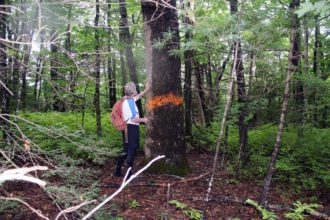

In part four, the last in the series, CPP reports on the objections and responses to the recent decision to harvest 26 acres that encompass an old growth patch of forest on a 3,500-foot mountaintop — the Southside Project.

The recent decision to harvest 26 acres that encompass an old-growth patch of forest on a 3,500-foot mountaintop – the Southside Project – underscores what some say is the widening incongruity between the U.S. Forest Service’s mission, climate change crisis and the public’s will.
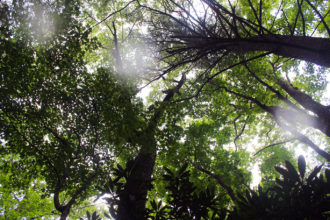
Scientists say old-growth forests are essential tools in the fight against climate change. Harvesting them releases greenhouse gasses, worsening climate impacts.
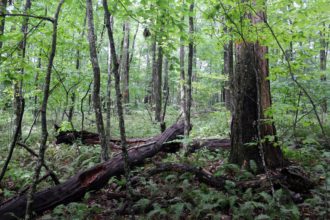
The recent decision to harvest 26 acres that encompass an old-growth patch of forest on a 3,500-foot mountaintop — the Southside Project — underscores what some say is the widening incongruity between the U.S. Forest Service’s mission, climate change crisis and the public’s will.

Rural northern Buncombe County is the first area in the county to see the result of the American Rescue Plan Act’s quest to expand reliable broadband access. Buncombe is one of 81 NC counties that have received state funding to improve internet service.

Federal Treasury data shows that about half of the American Rescue Plan Act funds spent in WNC counties has been used on staff salaries. Nearly $98 million is still available to be allocated.

Haywood County is currently the only mountain county using federal pandemic relief dollars to support local community colleges.
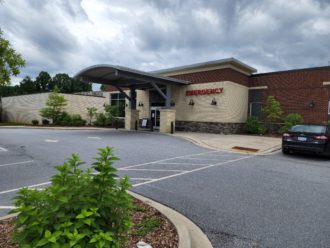
Brevard officials hope other Western North Carolina local governments will join the city’s lawsuit alleging monopolistic practices by HCA Healthcare. None have, but none say they have ruled it out.
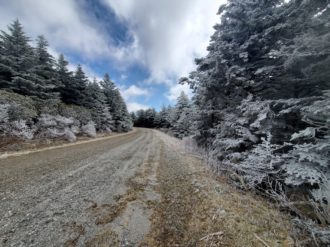
On June 7, Carolina Public Press held a free and open virtual event with a panel of experts to discuss threats to the future of public forests in the state, including climate change. A recording of the event is linked to this story.
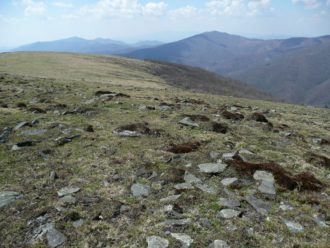
Innovative approaches such as land restoration and private-public partnerships, as well as revisiting tried approaches such as herd grazing and indigenous land management, offer partial answers to the challenges of a changing climate in WNC forests.
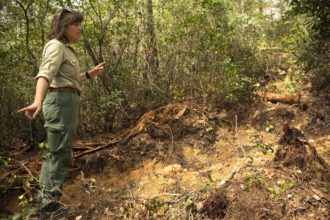
Maintaining trails in Western North Carolina’s mountain forests poses tough choices between recreation and sustainability.

Climate change and extreme weather events disrupt habitat areas and food sources in NC mountain forests, while human infrastructure blocks natural migration paths and creates dangers near roadways for large animal species.
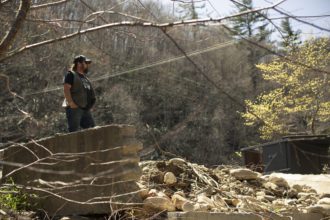
Researchers seek to understand risks climate change poses for the Blue Ridge woodlands of Western North Carolina while many residents experience the disruption of extreme weather.

Xpress sat down with the heads of two local nonprofit news organizations to learn how the business model compares to its for-profit cousin and whether the concept offers a sustainable solution to an industry struggling to hang on.
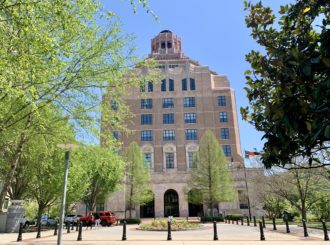
The city used a scoring system to winnow the field of applicants, but at least one council member questions the fairness of that approach.

Jackson County, home to Western Carolina University, has no domestic violence shelter, but efforts to combine federal dollars and other funding are working to change that.

The city in North Carolina’s rainiest county is putting much of its federal American Rescue Plan Act funds toward stormwater infrastructure.

Eighteen nonprofits aiding mountain residents with services like housing, diapers, food, the arts, education and advocacy receiving more than $13.9 million of Buncombe County’s ARPA funding.
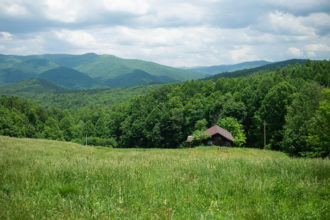
Many areas of rural mountains in NC have limited internet access or people are forced to rely on satellites. Infusion of funds may change that.

Process and legal questions about involvement in Jan. 6, 2021, events at the U.S. Capitol abound in legal challenge to candidacy of U.S. Rep. Madison Cawthorn.
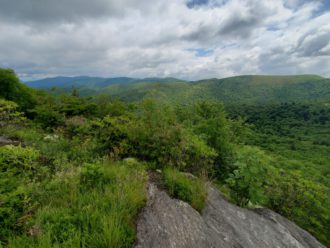
The U.S. Forest Service offered four alternative management plans for the Pisgah and Nantahala national forests in 2020. It has decided to go with a fifth alternative.